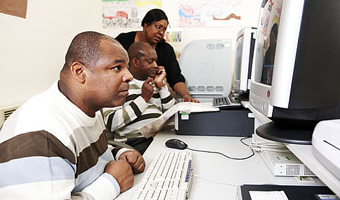Find out how Info For Me can help you
Advocacy

Advocacy
Advocacy means speaking up for an individual or group. It helps people make their own decisions and gives them as much control as possible over their own lives.
What advocacy can do
Advocacy can help you:
- safeguard your rights
- access information
- make sure your voice is heard
Access to advocacy
People covered by the Mental Health (Care and Treatment) (Scotland) Act 2003 have a legal right to independent advocacy. This includes people who have a mental health issue, a learning disability, autism or dementia.
An advocate can help you understand your rights, work out your options, express your views and support you to make decisions.
The role of the advocate is not restricted to mental health situations. Depending on where you live, you might be able to access advocacy in other situations.
However, everyone can ask for an advocate and everyone has a right to have someone else present at healthcare appointments.
If you would like more information about advocacy visit the Scottish Independent Advocacy Alliance website. They can help you find an advocate.
If you get Self-directed Support you can also access an advocate from Support in the Right Direction organisations.
Self-advocacy
If you look after someone and feel you’d like to get your voice heard more effectively, visit Being Heard: a self-advocacy toolkit for carers on the Carers Scotland website.
Further information
Find out more about the:
- Mental Health (Care and Treatment) (Scotland) Act 2003
- Adults with Incapacity (Scotland) Act 2000
- Adult Support and Protection (Scotland) Act 2007
- Patient Rights (Scotland) Act 2011
The information was last updated on: 03rd November 2023

